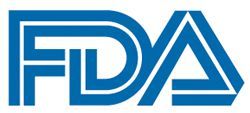FDA Accepts NDA for Ensartinib in Metastatic ALK+ NSCLC
The FDA has accepted a new drug application for ensartinib in metastatic ALK-positive non–small cell lung cancer.
FDA

The FDA has accepted a new drug application (NDA) seeking the approval of ensartinib (X-396) for the treatment of adult patients with metastatic ALK-positive non–small cell lung cancer (NSCLC), according to an announcement from Xcovery Holdings.1
The NDA was supported by data from the phase 3 eXalt3 trial (NCT02767804), which showed that patients in the intent-to-treat (ITT) population who received ensartinib (n = 143) experienced a median progression-free survival (PFS) of 25.8 months (range, 0.03-44.0) compared with 12.7 months (range, 0.03-38.6) for patients treated with crizotinib (Xalkori; n = 147), translating to a 49% reduction in the risk of progression or death (HR, 0.51; 95% CI, 0.35-0.72; log-rank P < .001). The median follow-up was 23.8 months (range, 0-44) in the ensartinib arm and 20.2 months (range, 0-38) in the crizotinib arm.2
A standard review was granted to the NDA, and the FDA assigned a target action date of December 28, 2024, under the Prescription Drug User Fee Act.1
“The FDA’s acceptance of this NDA represents a key milestone for Xcovery in its mission to bring ensartinib as a novel and distinct first-line therapeutic option to [patients with] ALK-positive NSCLC,” Giovanni Selvaggi, MD, chief medical officer of Xcovery, stated in a news release. “We will continue to work closely with the agency during the review period. This achievement is a testament to our patient-centric vision and has been made possible by the dedication and skills of the entire Xcovery team and stakeholders, with the constant support of the patients, their families, and investigators in our clinical trials globally.”
The open-label, multicentereXalt3 trial enrolled 290 patients at 120 centers across 21 countries between July 25, 2016, and November 12, 2018. The study included adult patients with advanced, recurrent, or metastatic ALK-positive NSCLC, as determined by local testing. Patients were required to have measurable disease per RECIST v1.1 criteria. Up to 1 prior line of chemotherapy for metastatic disease was allowed, and those with asymptomatic brain metastases were permitted to enroll.2
Key exclusion criteria included cancer therapy within 4 weeks or radiotherapy within 14 days of study entry; and prior treatment with ALK TKIs or anti–PD-1/PD-L1 therapy.
Patients were randomly assigned in a 1:1 fashion to receive ensartinib225 mg once daily or crizotinib250 mg twice daily.
PFS per blinded independent central review served as the study’s primary end point. Secondary end points included systemic and intracranial response; time to central nervous system progression; and overall survival. Efficacy was evaluated in the ITT population and a prespecified, modified ITT (mITT) population that included patients with central laboratory–confirmed ALK-positive NSCLC.
Additional data from the ITT population showed that ensartinib elicited an objective response rate of 74% (95% CI, 66%-81%) compared with 67% (95% CI, 58%-74%) for crizotinib. The median duration of response was not reached (NR; 95% CI, 22.0-NR) for ensartinib vs 27.3 months (95% CI, 12.9-NR) for crizotinib.
In the mITT population, the median PFS was NR (95% CI, 20.2-NR) for ensartinib (n = 121) vs 12.7 months (95% CI, 8.9-16.6) for crizotinib (n = 126; HR, 0.45; 95% CI, 0.30-0.66; log-rank P < .001). The estimated 24-month PFS rates were 54.2% (95% CI, 43.4%-63.7%) and 36.4% (95% CI, 27.1%-45.9%) for ensartinib and crizotinib, respectively.
Regarding safety, serious treatment-related adverse effects (TRAEs) occurred in 7.7% of patients in the ensartinib arm vs 6.1% in the crizotinib arm. Dose reductions were required in 23.8% and 19.9% of patients, respectively. The rates of treatment discontinuations were 9.1% for ensartinib and 6.8% for crizotinib.
The most common any-grade TRAEs reported in at least 10% of patients in the ensartinib arm included rash (67.8%), increased aspartate aminotransferase (37.8%), increased alanine aminotransferase (48.3%), pruritus (26.6%), nausea (22.4%), constipation (20.3%), edema (21.0%), anemia (14.0%), vomiting (11.9%), increased blood alkaline phosphatase (13.3%), increased blood creatinine (14.0%), increased γ-glutamyl transferase (13.3%), and decreased appetite (11.2%).
References
- U.S. Food and Drug Administration (FDA) has accepted the new drug application (NDA) for ensartinib. News release. Xcovery Holdings. March 13, 2024. Accessed March 13, 2024. https://www.businesswire.com/news/home/20240313675039/en
- Horn L, Wang Z, Wu G, et al. Ensartinib vs crizotinib for patients with anaplastic lymphoma kinase-positive non-small cell lung cancer: a randomized clinical trial. JAMA Oncol. 2021;7(11):1617-1625. doi:10.1001/jamaoncol.2021.3523



